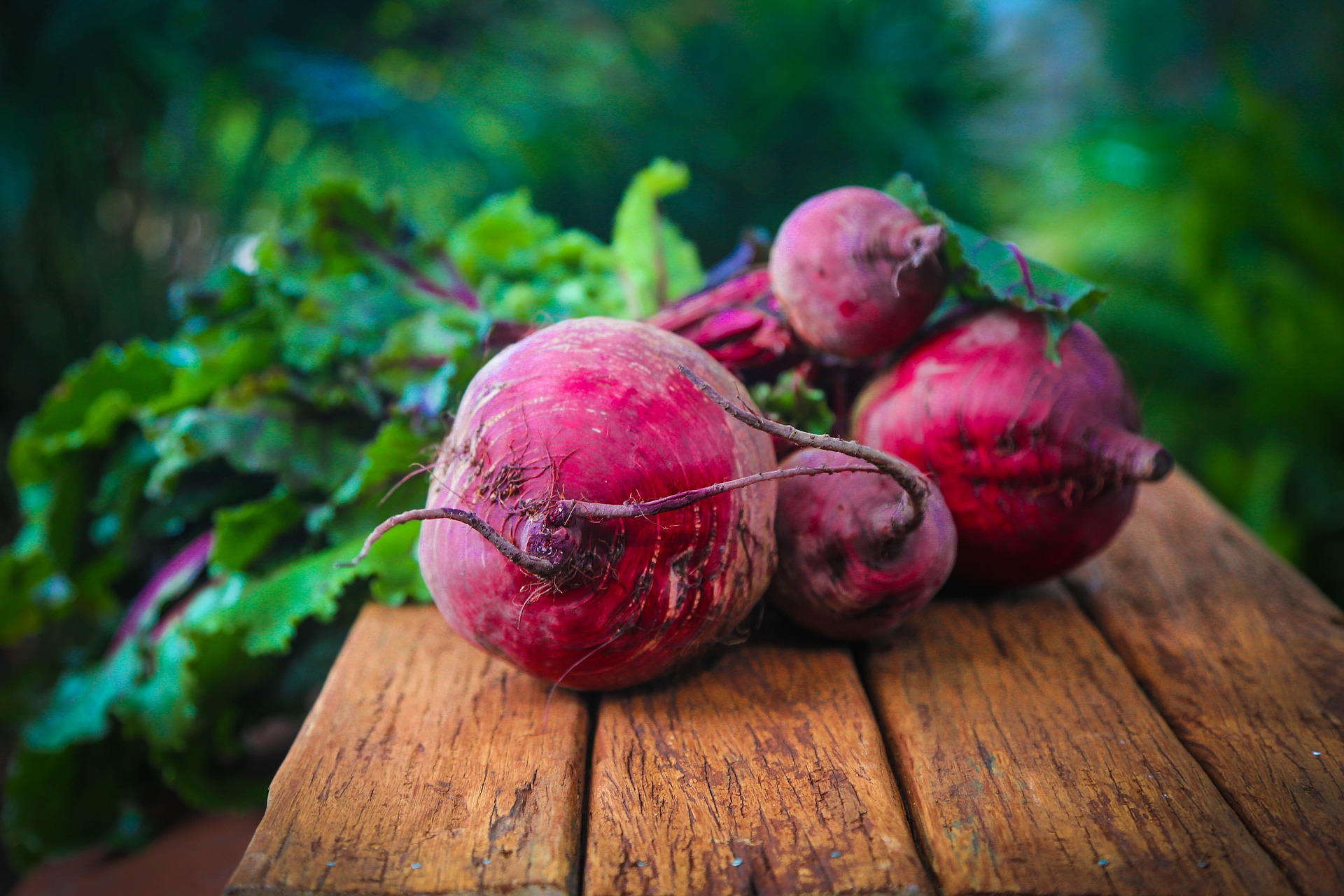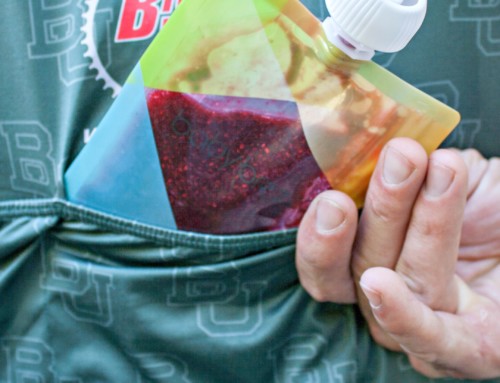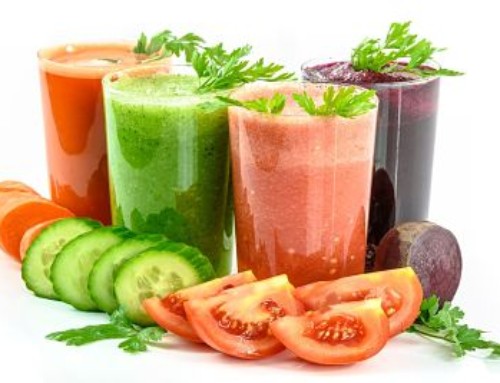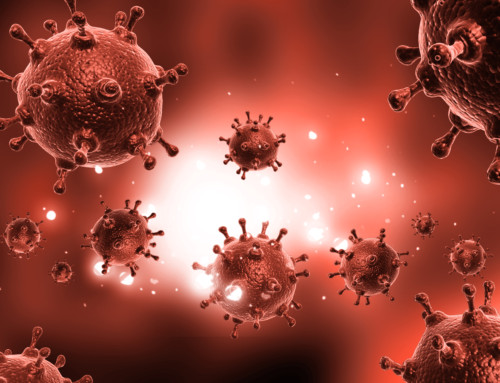Author: Em Wooden
Humans have been eating beets for centuries. The Ancient Greeks and Romans loved beet greens so much that gardeners actively sought out methods to keep fresh beets available throughout the year. These earthy vegetables were supposedly present in the Hanging Gardens of Babylon. In Europe during the 1500s people began eating the beetroots in addition to the greens, and to this day the roots are commonly enjoyed in a variety of dishes; they are often baked, stir fried, boiled, and even served raw. Several studies have been conducted over the past few years which indicate that beetroots and beetroot juice are particularly beneficial for athletes.
Beets are low in calories but are high in carbohydrates, fiber, and nitrates. They have been credited with lowering athletes’ blood pressure and increasing their plasma nitrate concentration. Cyclists, runners, swimmers, walkers, and rowers alike have seen an increase in their performance when they have supplemented their ordinary diet with some form of beetroot. The key to the beetroot’s impact on athletic performance seems to be nitrate. There are multiple ways in which nitrate benefits athletic performance: it allows blood vessels to widen and blood pressure to fall, which means that more blood is able to flow throughout the body. It also alters the tissue of your muscles, which causes them to require less oxygen while you are working out. These factors are helpful whether you are exercising at low intensity or high intensity.
Most researchers have utilized beetroot juice when studying the effect of beetroots on athletic performance, although a 2013 study in the American Journal of Physiology used baked beetroots and found that the subjects still benefit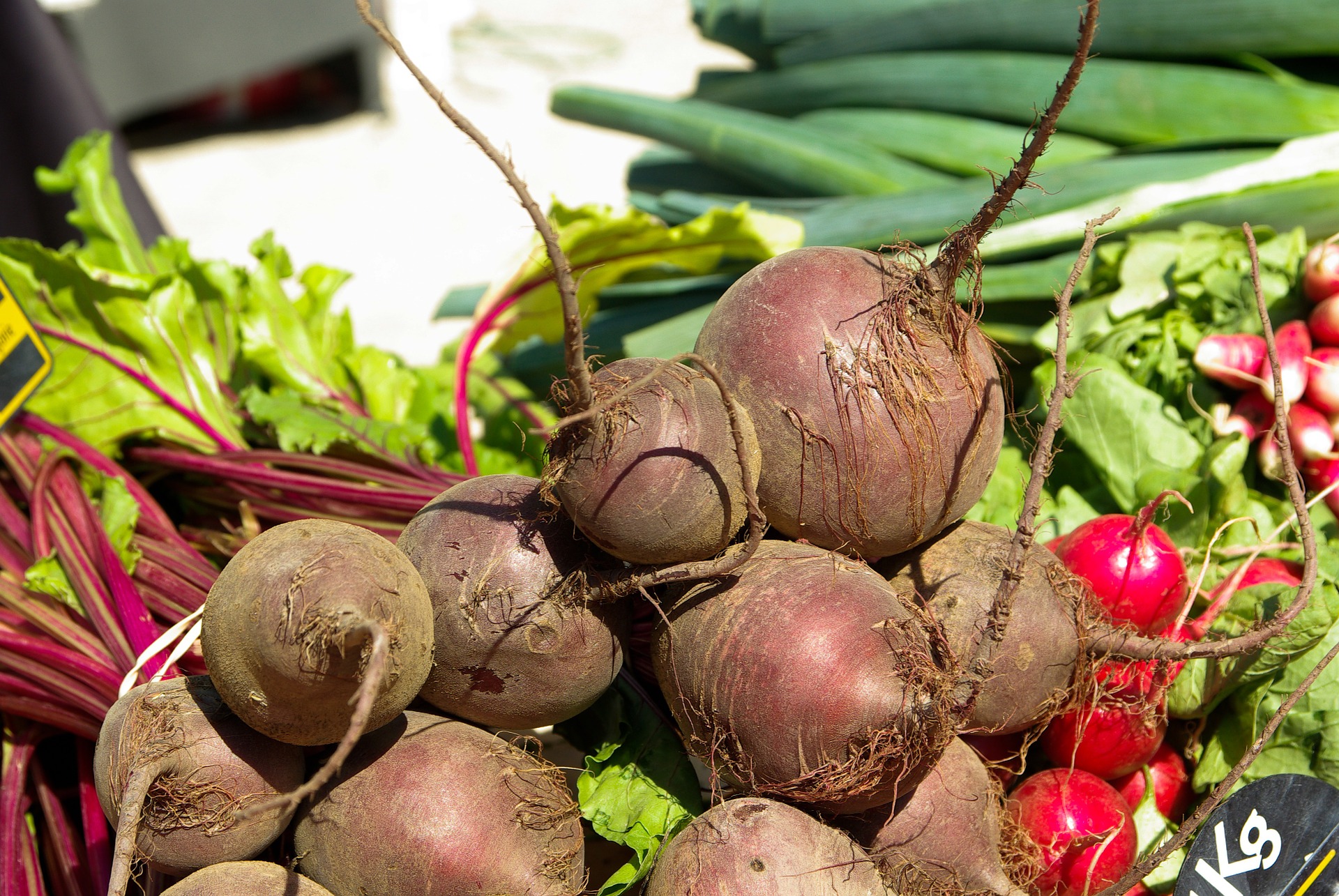 ted. It is important to consider the timing of consumption if you want your workout to fully benefit from the nitrate. A relatively light snack comprised of beetroots or a glass of beetroot juice should be consumed about 30 minutes to two hours before you exercise, but if you eat a full meal with your beetroots it would be better to wait approximately three hours. In terms of the amount of beetroot you should be consuming, you need to take into account your own body’s reaction to the vegetable. The high amount of fiber can irritate some people’s digestive systems, particularly if they are exercising soon after eating. Experiment and figure out what works for you.
ted. It is important to consider the timing of consumption if you want your workout to fully benefit from the nitrate. A relatively light snack comprised of beetroots or a glass of beetroot juice should be consumed about 30 minutes to two hours before you exercise, but if you eat a full meal with your beetroots it would be better to wait approximately three hours. In terms of the amount of beetroot you should be consuming, you need to take into account your own body’s reaction to the vegetable. The high amount of fiber can irritate some people’s digestive systems, particularly if they are exercising soon after eating. Experiment and figure out what works for you.
Some people are put off by the flavor of beetroots while others enjoy it (this is due to a naturally-occurring substance in beets called geosmin; people tend to either love it or hate it). If you are intimidated by the idea of eating a beet by itself, try baking a tray of chopped beets, carrots, potatoes, parsnips, and other root vegetables. Beets can be incorporated into casseroles, stews, and even chili. You can also add beets to your favorite homemade soup; the flavor will be somewhat mellower and the soup will turn a beautiful dark red. The natural dye in the beets may cause your urine to turn red or purple the day after you consume them…don’t worry, it’s perfectly normal.
For those who would rather drink beetroot juice, there are options. If you own a juicer, you can make your own fresh juice. There are also various beetroot juice supplements on the market. BeetElite® is a “nitric oxide powered superfood” that comes in small packets and larger tubs. Add one serving to your water bottle and you’ve got six beets’ worth of nitric oxide to push you through your workout. It is more efficient than eating beetroots or drinking pure beetroot juice. Red Ace is an “organic beet performance supplement” that comes in the form of a two-ounce shot. Each tiny glass bottle contains three organic beets, and no sugar is added. Both BeetElite® and Red Ace can be purchased at Evolution, because we believe that these are the best beetroot products on the market. Whether you decide to start cooking with beets on a regular basis or to throw back a beetroot juice supplement before your next workout, science suggests that your body will thank you for it.
WORKS CITED
Avey, Tori. “Discover the History of Beets.” PBS. PBS, 08 Oct. 2014. Web. 27 Dec. 2015. <http://www.pbs.org/food/the-history-kitchen/history-beets/>.
Bailey, S. J., P. Winyard, A. Vanhatalo, J. R. Blackwell, F. J. Dimenna, D. P. Wilkerson, J. Tarr, N. Benjamin, and A. M. Jones. “Dietary Nitrate Supplementation Reduces the O2 Cost of Low-intensity Exercise and Enhances Tolerance to High-intensity Exercise in Humans.” Journal of Applied Physiology 107.4 (2009): 1144-155. Web.
“Beet Juice Benefits | Red Ace Organics.” Red Ace Organics Benefits. N.p., n.d. Web. 27 Dec. 2015. <http://redaceorganics.com/benefits.html>.
Breese, B. C., M. A. Mcnarry, S. Marwood, J. R. Blackwell, S. J. Bailey, and A. M. Jones. “Beetroot Juice Supplementation Speeds O2 Uptake Kinetics and Improves Exercise Tolerance during Severe-intensity Exercise Initiated from an Elevated Metabolic Rate.” AJP: Regulatory, Integrative and Comparative Physiology 305.12 (2013): n. pag. Web.
Farnen, Karen. “Eating Beets Before a Workout.” LIVESTRONG.COM. LIVESTRONG.COM, 28 June 2015. Web. 27 Dec. 2015. <http://www.livestrong.com/article/553690-beets-pre-workout/>.
Hoon, Matthew W., Andrew M. Jones, Nathan A. Johnson, Jamie R. Blackwell, Elizabeth M. Broad, Bronwen Lundy, Anthony J. Rice, and Louise M. Burke. “The Effect of Variable Doses of Inorganic Nitrate-Rich Beetroot Juice on Simulated 2000-m Rowing Performance in Trained Athletes.”International Journal of Sports Physiology and Performance IJSPP 9.4 (2014): 615-20. Web.
Murphy, Margaret, Katie Eliot, Rita M. Heuertz, and Edward Weiss. “Whole Beetroot Consumption Acutely Improves Running Performance.” Journal of the Academy of Nutrition and Dietetics 112.4 (2012): 548-52. Web.
Pinna, Marco, Silvana Roberto, Raffaele Milia, Elisabetta Marongiu, Sergio Olla, Andrea Loi, Gian Migliaccio, Johnny Padulo, Carmine Orlandi, Filippo Tocco, Alberto Concu, and Antonio Crisafulli. “Effect of Beetroot Juice Supplementation on Aerobic Response during Swimming.” Nutrients6.2 (2014): 605-15. Web.
“Purely Non-GMO Beet Performance Products | Neogenis Sport.” BeetElite Pure Nutrition. N.p., n.d. Web. 27 Dec. 2015. <https://neogenissport.com/about-neogenis-sport/pure-nutrition/>.
“Research Reveals New Secret Weapon for Le Tour.” University of Exeter. University of Exeter, 1 July 2011. Web. 27 Dec. 2015. <http%3A%2F%2Fwww.exeter.ac.uk%2Fnews%2Fresearch%2Ftitle_145007_en.html>.
Wylie, L. J., J. Kelly, S. J. Bailey, J. R. Blackwell, P. F. Skiba, P. G. Winyard, A. E. Jeukendrup, A. Vanhatalo, and A. M. Jones. “Beetroot Juice and Exercise: Pharmacodynamic and Dose-response Relationships.” Journal of Applied Physiology 115.3 (2013): 325-36. Web.

